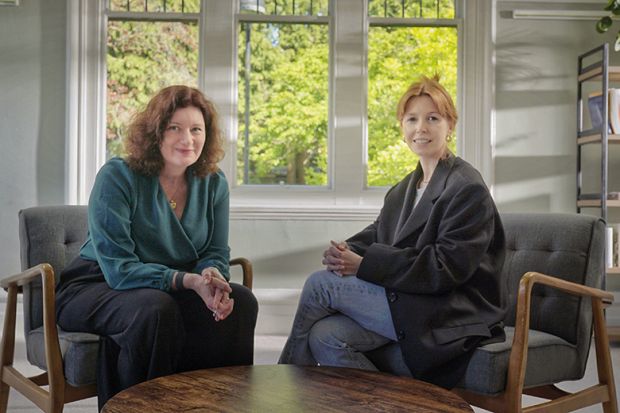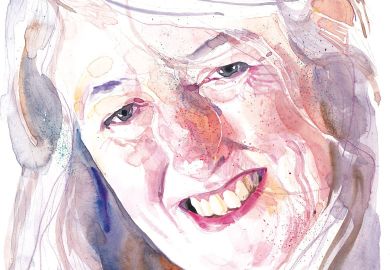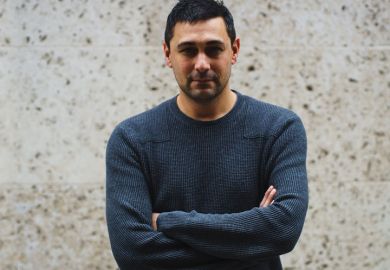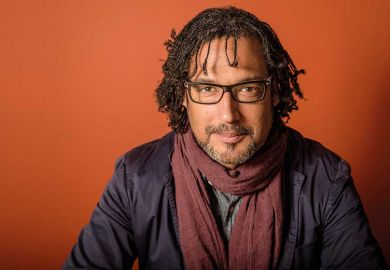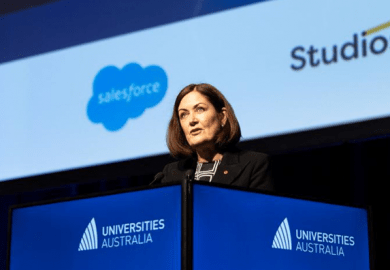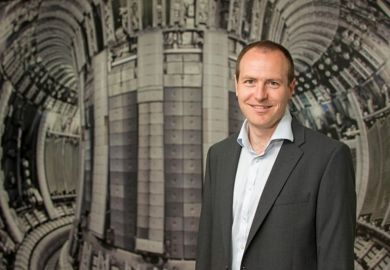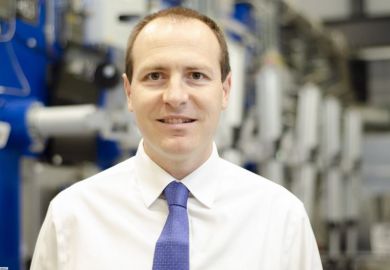When tears start to flow on DNA Family Secrets as life-changing news about long-lost parents and unknown siblings is revealed, geneticist Turi King admits she is not one for stern-faced stoicism.
“If the producers wanted a hard-nosed scientist, I’m not that kind of academic,” explained the co-presenter of the BBC Two genealogy show, which has just returned for a third series, on her struggles to hold back tears during filming.
Alongside journalist Stacey Dooley, Professor King is once again helping people to track down missing relatives, solve family mysteries or learn more about hereditary illnesses that may have been passed down to the present day – all using DNA testing, combined with some family tree sleuthing led by the Canadian-British professor of public engagement and genetics at the University of Leicester.
Academics on such shows usually take the part of the dour scientific expert – with the star presenter arriving for the hugs and tears – but Professor King confesses that this role doesn’t come naturally to her. It is even harder because the latest run of shows is particularly emotional.
“We do not know what we are going to find,” Professor King said. “Sometimes people are delighted to know that they have a child or half-sister or brother, but we do get people saying they don’t want any relationship with those looking for them.
“When this happens we have to say ‘this is not you’ and that those people are not in a place where they can process things right now, but it’s very hard.”
These unresolved issues – including when investigations hit a dead end – are part of what sets apart DNA Family Secrets from similar shows. Professor King said they “wanted to show the reality of DNA testing...even if we can’t give the satisfying answers that we want to”.
This has not prevented the show becoming a hit, with its popularity also partly linked to the boom in DNA testing kits and family history sites – both of which are now multimillion-pound industries – and fascinating advances in DNA tracing now commonly used in archaeology and historical research.
In this respect, Professor King was involved in arguably the most spectacular piece of UK historical research in living memory: the discovery of Richard III’s body from beneath a car park in Leicester in 2012. Thanks to DNA tests conducted by Professor King and her colleagues using known descendants of the Plantagenet dynasty, the hunchbacked body was irrefutably identified as Richard III, while new living descendants were discovered – of whom one was the actor Benedict Cumberbatch.
But “DNA has moved on” even from a decade ago, with the BBC programme “showing people what we can and cannot do with the technology”, said Professor King, who cites the arrival of DNA databases capable of providing partial matches as a game changer.
Once these DNA leads emerge, Professor King said she takes the role of a “stalker” by “combing LinkedIn, Twitter and other internet sites” and linking them to publicly available historical records “to build a family tree and then start tracing back down”.
Recently she was asked by Sir Paul Nurse, director of the Francis Crick Institute, to see if she could identify his birth father, a decade after the Nobel laureate discovered the woman he thought was his sister was actually his mother.
With Sir Paul the product of a brief affair in north London in the late 1940s and his mother now deceased, it seemed unlikely that anyone would be identified, but Professor King said it was “ridiculously straightforward” to trace him thanks to a partial DNA match.
“I spoke to Paul as he was getting on a flight to Japan and, by the time he’d landed, I knew who his father was,” said Professor King, who took her PhD at Leicester under the supervision of DNA fingerprinting pioneer Sir Alec Jeffreys. “He’s now met some of his half-siblings who are quite amazed they’ve got a Nobel winner in the family – Paul says he’s quite overwhelmed by it all but is happy to fill in these historical gaps.”
Such issues of finding unknown fathers will only become more common thanks to a change in legislation related to sperm donors that allows anyone conceived after April 2005 to find out who their birth father is once they turn 18, explained Professor King.
“People have been denied this information but, as DNA Family Secrets shows, finding your biological parent is a really important thing for many people. They’ll sometimes contact me on Twitter to ask what they should do and how to handle any encounter if they meet,” she said, reflecting that fame, fortune and seniority does not erase the need to answer that great question that has inspired and vexed writers, scientists and historians for centuries: who am I?
“Even if you’re one of Britain’s most eminent scientists, filling in these historical pieces about your life is hugely important.”
Register to continue
Why register?
- Registration is free and only takes a moment
- Once registered, you can read 3 articles a month
- Sign up for our newsletter
Subscribe
Or subscribe for unlimited access to:
- Unlimited access to news, views, insights & reviews
- Digital editions
- Digital access to THE’s university and college rankings analysis
Already registered or a current subscriber? Login
